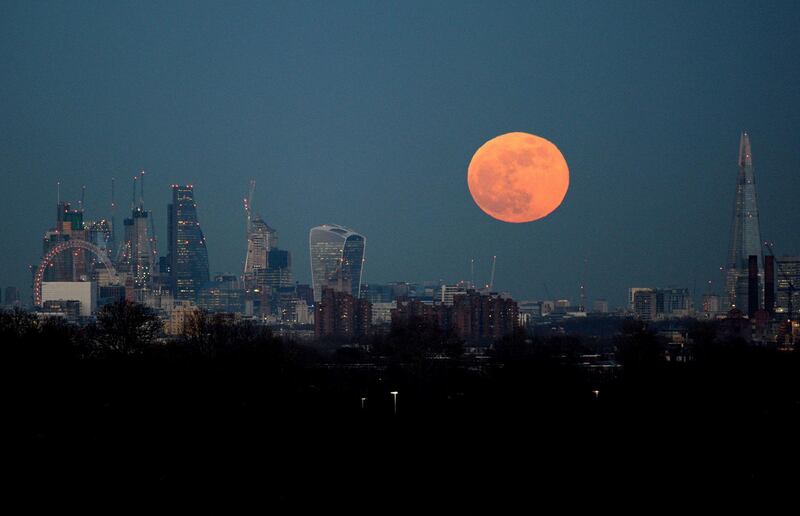There was a time when London was known as Londonistan, owing to the preponderance of radical Islamist activists – many with close ties to extremist groups like Al Qaeda and the Muslim Brotherhood – who had taken refuge in the British capital, using it as a base from which to propagate their pernicious creed.
But now London is attracting a new, equally unflattering sobriquet, namely that of Londongrad, which is due to the large number of Russian oligarchs who have taken up residence in the city.
For the past few weeks, the dull winter nights in Britain have been enlivened by the BBC television drama McMafia, an unlikely tale about a British-educated member of a prominent family of oligarchs who becomes caught up in a bizarre world of Russian hitmen, Indian drug dealers and Israeli money-launderers. Entertaining, maybe, but most viewers see it more as a diverting thriller that bears little resemblance to reality.
And yet, to judge by some of the more controversial recent developments concerning Russian activity in London, the plot line might not be that far-fetched after all.
The latest scandal to emerge relates to the recent float of the Russian-owned energy and aluminium company EN+ on the London Stock Exchange at the end of last year.
EN+ is owned by Oleg Deripaska, one of Russia’s wealthiest men and a close ally of Vladimir Putin. Mr Deripaska is something of a controversial figure in British political circles owing to his relationship with some of Britain’s most prominent political figures.
In 2008, former Chancellor of the Exchequer George Osborne found himself in hot water after he went on a sailing holiday with Mr Deripaska and former Labour minister Lord Mandelson, during which Mr Osborne was accused of soliciting illegal donations to the Tory party. Mr Osborne – who now edits the Russian-owned Evening Standard – furiously denied claims of any wrongdoing, thereby bringing the controversy to an end.
Now Mr Deripaska finds himself embroiled in a fresh controversy in Britain after the Daily Telegraph this week reported that senior officers at MI6, the intelligence service, were furious over the stock exchange decision to allow EN+ to float in London.
MI6 regards Russia as posing a grave threat to British security. Intelligence officers estimate there are now more Russian spies operating in the UK than there were at the height of the Cold War.
Their concerns over the flotation relate to Rusal, an aluminium company that is also owned by Mr Deripaska and is suspected of having links to the Russian military. EN+ owns half of Rusal, which until recently said on its website that a fine metal powder it produced was used “in the production of military equipment”.
British intelligence experts believe the same type of powder was used in a Russian-built Buk missile that Dutch investigators said shot down Flight MH17 over Ukraine in 2014, killing all 298 people on board.
Because of these suspicions, MI6 officers believe they should have been consulted prior to the flotation being allowed to proceed, on the grounds that it could have a direct bearing on Britain’s national security interests.
One senior intelligence officer familiar with the case described the flotation as a “scandal”.
Sir Mike Penning, a former UK defence minister, who has tabled a series of questions in the Commons about the flotation, said: “Russia is an enemy. As a former defence minister it was me that got called early in the morning because there were Russian Bears [long-distance bombers] flying over.”
The flotation raised an estimated $1 billion for the company at a time when Russia is desperate for foreign currency because of the wide-ranging sanctions imposed by the US and other major powers for its invasion and illegal annexation of Crimea.
The Financial Conduct Authority, which oversees LSE listings, said it was not aware the deal breached sanctions legislation.
A statement issued by EN+ denied any wrongdoing.
The controversy surrounding the deal brings London’s importance to Russian oligarchs in the spotlight once more, as well as the need for the British authorities to pay closer attention to their activities.
As part of an attempt to clamp down on suspicions that some unscrupulous Russian individuals are using the city for money-laundering activities, Ben Wallace, the UK security minister, announced earlier this week that he wants to use new powers to crack down on the illicit assets of Russian businessmen based in Britain, seizing assets such as prime residential property in central London that the authorities believe have been obtained through ill-gotten gains.
Another area where the British security forces need to raise their game is investigating the large number of Russian opponents to Mr Putin’s regime who have died in suspicious circumstances in recent years.
The murder of Russian dissident Alexander Litvinenko, who was killed in London by Russian intelligence officers in 2006 after being poisoned with a radioactive substance, is probably the most high profile assassination the Russians have carried out in recent years.
But British intelligence officials say there are another 14 unexplained deaths of Russians who have died in suspicious circumstances, but where the police have been unable to find sufficient evidence to mount a prosecution.
All of which suggests that modern-day Londongrad is every bit as dangerous as it is portrayed by the plot line of McMafia.
Con Coughlin is the Daily Telegraph's defence and foreign affairs editor





